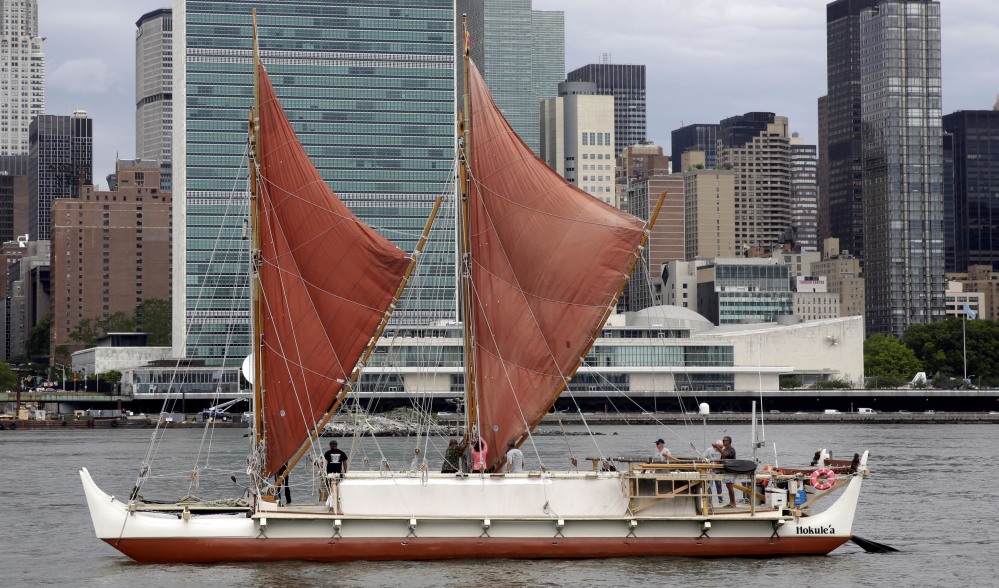HONOLULU — No modern navigation instrumentation guided a Polynesian voyaging canoe as it followed the horizon during a three-year journey around the globe.
About a dozen crewmembers for each leg of the voyage relied only on their understanding of nature’s cues – ocean swells, stars, wind, birds – and their own naau, or gut, to sail across about 40,000 nautical miles to 19 countries, spreading a message of malama honua: Caring for the Earth.
On Saturday, thousands welcomed double-hulled canoe Hokulea home to Hawaii when it entered a channel off the island Oahu and tied up to a floating dock with iconic Diamond Head in the distance.
The voyage perpetuated the traditional wayfinding that brought the first Polynesians several thousand miles to Hawaii hundreds of years ago. The trip also helped train a new generation of young navigators.
Hokulea means star of gladness. The canoe was built and launched in the 1970s, when there were no Polynesian navigators left. So the Voyaging Society looked beyond Polynesia to find one.
Mau Piailug, from a small island called Satawal in Micronesia, was among the last half-dozen people in the world to practice the art of traditional navigation and agreed to guide Hokulea to Tahiti in 1976.
“Without him, our voyaging would never have taken place,” the Polynesian Voyaging Society said on the website for Hokulea. “Mau was the only traditional navigator who was willing and able to reach beyond his culture to ours.”
The epic round-the-world voyage that started in 2014 shows how far Hokulea has gone since its first voyage from Hawaii to Tahiti in 1976.
Disaster befell another voyage in 1978 when the canoe capsized off the Hawaiian island of Molokai in a blinding storm. Eddie Aikau, a revered Hawaiian surfer and lifeguard on the crew, grabbed his surfboard and paddled for help, but was never seen again. The rest of the crewmembers were rescued.
Crewmembers hope the success of the latest journey will inspire other indigenous cultures to rediscover and revive traditions. Thompson said he also hopes indigenous cultures can help with solutions to modern-day problems such as climate change.
Native Hawaiian ancestors were not only skilled navigators but good stewards of the islands who farmed and fished sustainably.
“They figured it out – how to live well on these islands,” Thompson said. “And I think that is the challenge of the time for planet earth and all of humanity.”
Send questions/comments to the editors.



Success. Please wait for the page to reload. If the page does not reload within 5 seconds, please refresh the page.
Enter your email and password to access comments.
Hi, to comment on stories you must . This profile is in addition to your subscription and website login.
Already have a commenting profile? .
Invalid username/password.
Please check your email to confirm and complete your registration.
Only subscribers are eligible to post comments. Please subscribe or login first for digital access. Here’s why.
Use the form below to reset your password. When you've submitted your account email, we will send an email with a reset code.